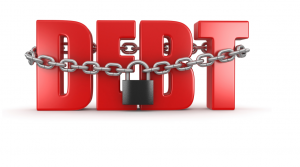
What makes the obvious difference is how they spend their money. They have different priorities.
People who make a conscious decision to corral their personal finances and keep them under control have some characteristics that others do not, financial experts say. They list seven of these traits as:
Being wise.
Those who decide they are through with debt, approach the problem as if it’s a pernicious skin disease that they must get rid of. Now. They make it a priority.
Being patient.
They can walk past sales and other temptations without a qualm because they know that in the long run, they will be better off. Impulse buying is the impatient downfall that defeats debt eradication.
Being confident.
People who are getting out of debt don’t pay attention to friends or relatives who comment on the lifestyle changes they are making. Start out the process with this in mind and stay confident in your decision to stick it out. You’ll achieve the financial peace of mind you are seeking.
Being goal-driven.
Determining to get out of debt is a goal in itself. But it requires more, short-term goals that will aid the process. Proceeding without definite plans could lead to frustration and stymie your objectives. Choose which of your debts you plan to attack first and stick with the agenda.
Being responsible.
Becoming financially mature doesn’t depend on the calendar. If you continue at age 50 to treat money as you did at age 20, you may never get out of debt. Responsibility means getting out of debt as quickly as possible and avoiding it in the future. Being out of debt doesn’t mean you can now spend foolishly. It means putting your debt-free money into saving for huge expenses such as college and assuring your retirement by investing your money wisely.
Refusing to be materialistic.
Attitudes toward money matter immensely. How much importance you put on STUFF will guide your use of money whether you have a lot or a little. There’s an old saying: “You can’t take it with you” that has become such an old, old saying because it is true.
Being willing to make sacrifices.
Eating out and paying big prices for entertainment might have to go by the board while you get out of debt. But these drastic budget cuts are temporary. When debt is in the past, you can start adding these items back into the budget. You may find you can cut back, however, and not miss them. Bottom line: If you are determined to be debt-free you will make the necessary sacrifices. You’ll take the actions that lead to financial peace.



